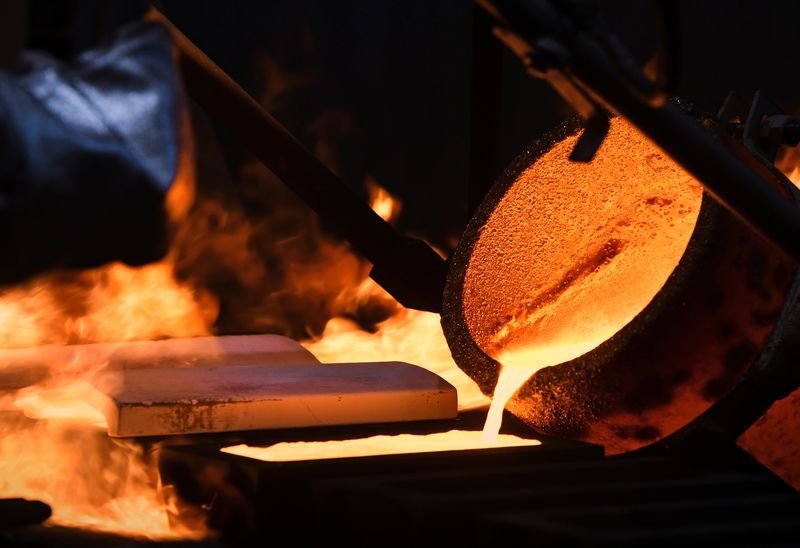Investing.com– Gold prices fell slightly in Asian trade on Friday as easing fears of a recession limited safe haven demand, although persistent expectations of interest rate cuts kept the yellow metal close to record highs.
Prices were also headed for a mildly positive week, although overall gains were limited by traders pricing in a smaller interest rate cut in September.
fell 0.1% to $2,453.02 an ounce, while expiring in December fell 0.1% to $2,490.15 an ounce by 01:08 ET (05:08 GMT).
Gold heads for weekly gains amid rate cut bets
Spot prices were trading up 0.9% for the week, and were about $30 away from a record high.
Soft inflation data released earlier this week fueled increased bets that the Federal Reserve will cut interest rates in September, although a month-on-month increase in consumer inflation saw traders more geared towards a 25 basis point over a 50 bps cut.
Stronger-than-expected data also inspired more confidence in the U.S. economy, while denting expectations for a bigger rate cut.
But the prospect of lower rates still bodes well for gold, given that it decreases the opportunity cost of investing in non-yielding assets.
Persistent concerns over an all-out war in the Middle East, between Iran and Israel, also kept some safe haven demand for gold in play.
Alpine Macro analysts recommended buying gold on the chance of worsening conditions in the Middle East, especially with Iran set to retaliate against Israel over the killing of a Hamas leader in Tehran.
Other precious metal prices fell on Friday but were also sitting on some gains this week.
fell 0.5% to $957.85 an ounce, while fell 0.7% to $28.207 an ounce.
Copper edges lower, but Escondida strike brings weekly gain
Among industrial metals, copper prices fell slightly on Friday, but were set for their first weekly gain in six as a strike in the world’s biggest copper mine presented a tighter outlook for supplies.
Benchmark on the London Metal Exchange fell 0.2% to $9,128.0 a ton, while one-month fell 0.1% to $4.1368 a pound. Both contracts were up about 3% for the week, breaking a five-week losing spree.
Workers in Chile’s Escondida mine, which accounts for 5% of global copper supplies, went on strike this week on disputes over compensation.
Any extended disruptions in production at Escondida presents a tighter outlook for global copper supplies, which is expected to support prices.
But bigger gains in copper were held back by persistent concerns over sluggish copper demand, especially after a slew of weak economic readings from top copper importer China.

